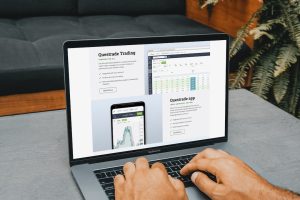Forex brokerage is a service provided by financial institutions that allows traders to buy and sell foreign currencies. Forex is short for foreign exchange, and it refers to the global decentralized market where currencies are traded around the clock. Forex trading is a popular way for investors to diversify their portfolios and potentially generate returns.
Forex brokers act as intermediaries between traders and the market. They provide access to trading platforms, which allow traders to execute trades, access real-time market data, and manage their accounts. Forex brokers earn revenue by charging fees on trades or by taking a spread, which is the difference between the bid and ask prices of a currency pair.
Forex brokers offer a wide range of services, including:
1. Trading platforms: Forex brokers provide access to trading platforms that allow traders to buy and sell currencies. These platforms offer a range of tools and features, including real-time market data, charting tools, and technical analysis indicators.
2. Education and research: Forex brokers offer educational resources and research materials to help traders improve their understanding of the market. These resources may include webinars, tutorials, and articles that cover topics such as trading strategies, risk management, and market analysis.
3. Customer support: Forex brokers provide customer support to help traders with any issues or questions they may have. This support may be available 24/7 via phone, email, or live chat.
4. Trading tools: Some forex brokers offer trading tools that can help traders analyze the market and make informed trading decisions. These tools may include economic calendars, news feeds, and sentiment indicators.
5. Account management: Forex brokers allow traders to manage their accounts online, including depositing and withdrawing funds, viewing account balances, and monitoring trading activity.
When selecting a forex broker, traders should consider a range of factors, including the broker’s reputation, regulatory compliance, trading costs, and available trading platforms. It’s important to choose a broker that is regulated by a reputable authority, such as the Financial Conduct Authority (FCA) in the UK or the National Futures Association (NFA) in the US.
Trading costs can vary significantly between brokers, so traders should compare spreads, commissions, and other fees before choosing a broker. Traders should also consider the trading platform offered by the broker and whether it meets their needs in terms of functionality, ease of use, and available trading instruments.
In conclusion, forex brokerage is a service provided by financial institutions that allows traders to buy and sell foreign currencies. Forex brokers act as intermediaries between traders and the market, providing access to trading platforms, educational resources, and customer support. When choosing a forex broker, traders should consider factors such as regulatory compliance, trading costs, and available trading platforms.





